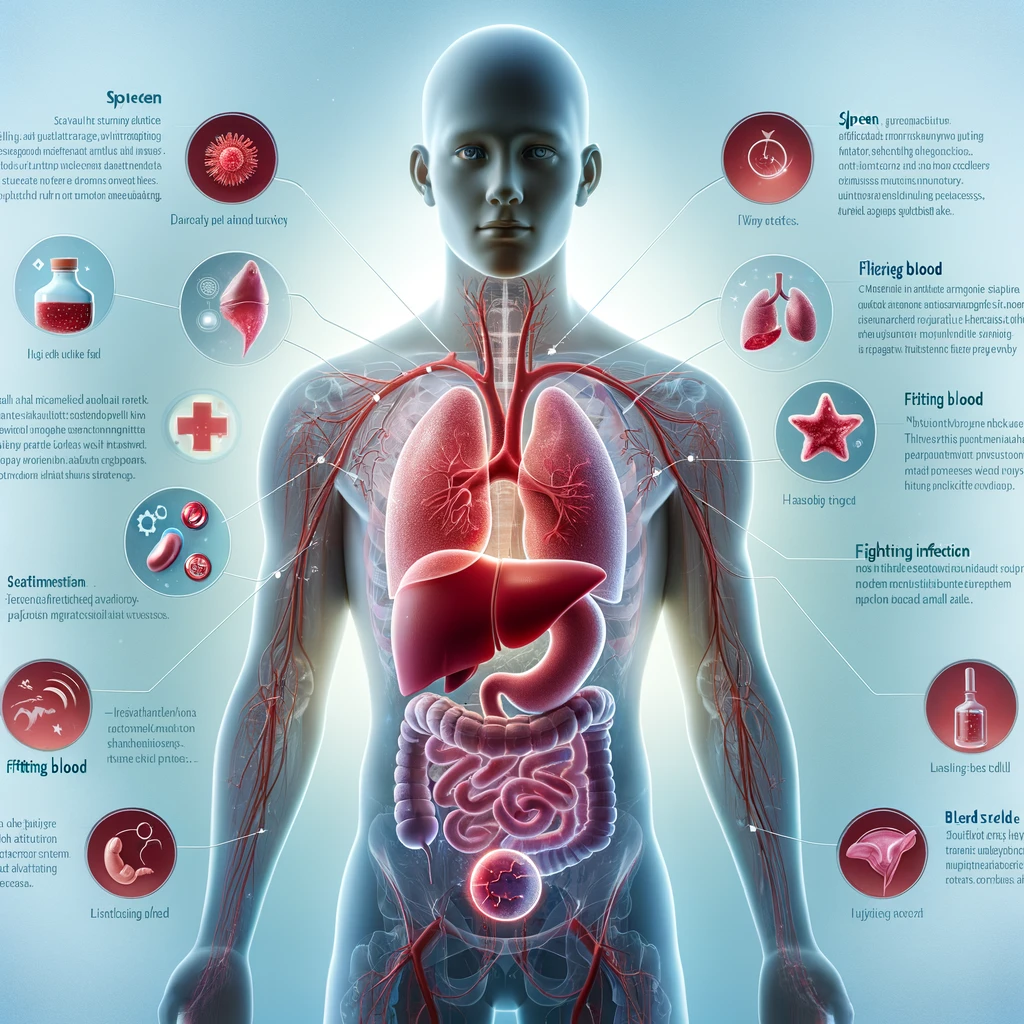
Understanding the Spleen: What Does It Do and Why Is It Vital?

The spleen, an organ often overshadowed by its anatomical neighbors, plays a critical role in maintaining a healthy immune system. Tucked away under the ribcage, it serves as a vital participant in our body's defense mechanisms.
Many may wonder, "What Does the Spleen Do?" Its functions are multifaceted, ranging from filtering blood to fighting infections. Let's delve into the spleen's importance and the impact its health has on our overall well-being.
Where Is the Spleen Located?
The spleen resides in the upper left part of the abdomen, just under the rib cage. This positioning makes it somewhat protected, yet an enlarged spleen can become more susceptible to injury.
It is adjacent to other vital organs such as the stomach and lies close to the diaphragm. The spleen's location is paramount because it allows the organ to efficiently process the blood that flows through it.
The organ's positioning also explains why spleen issues can sometimes be mistaken for other gastrointestinal complaints, highlighting the need for accurate diagnosis.
What Are the Main Functions of the Spleen?
The spleen is an integral component of the body's immune system. Its main functions include:
- Filtration of blood, removing old or damaged red blood cells.
- Producing white blood cells that fight infection.
- Storing platelets, vital for blood clotting.
- Helping to fight certain kinds of bacteria that cause pneumonia and meningitis.
These functions underscore the spleen's role in both blood purification and immune defense.
Without a healthy spleen, our bodies would struggle to maintain a balance of cells in the blood and be less equipped to fight off certain infections.
Common Problems Associated With the Spleen
Spleen issues can arise from various conditions, such as:
- An enlarged spleen (splenomegaly), potentially caused by infections like mononucleosis.
- Spleen injuries, often a result of traumatic impacts or accidents.
- Blood diseases, including hemolytic anemia, which can affect spleen function.
- Cancers such as lymphoma or leukemia that involve the spleen.
Recognizing common spleen problems is important in diagnosing and treating them effectively.
How to Detect Spleen Issues
Detection of spleen problems often begins with noting signs and symptoms such as:
- Pain or fullness in the left upper abdomen that may spread to the left shoulder.
- Feeling full without eating or after eating a small amount.
- Anemia or fatigue.
- Frequent infections.
- Easy bleeding.
Medical imaging and blood tests are commonly used to diagnose spleen issues. Regular check-ups are essential, especially if an individual is experiencing symptoms indicative of spleen problems.
Treatment Options for Spleen Diseases
Treatments for spleen diseases vary depending on the underlying condition. Options can include:
- Watchful waiting for conditions like enlarged spleen, where immediate treatment may not be necessary.
- Medications to address underlying conditions such as infections or autoimmune diseases.
- Spleen removal surgery (splenectomy) in cases of severe damage or disease.
- Vaccinations to prevent infections post-splenectomy.
Every treatment plan should be tailored to the individual's needs, with regular monitoring for any changes in condition.
Living Without a Spleen: What You Need to Know
Living without a spleen requires taking steps to mitigate health risks, such as:
- Vaccinations to protect against infections.
- Preventative antibiotics for certain individuals.
- Regular doctor visits to monitor for potential issues.
While the liver can take over some spleen functions, it's crucial for individuals without a spleen to be proactive about their health to avoid complications.
When navigating life post-splenectomy, understanding the risks and management of living without a spleen is the key to maintaining health.
Before we delve into commonly asked questions about spleen health, let's take a closer look at the spleen in action through an informative video.
What Happens If Your Spleen Is Removed?
After spleen removal, the risk of infections increases. The body can become more susceptible to bacteria and viruses that the spleen would typically help to fight off.
Vaccinations and vigilant health practices become critical for preventing infections. Long-term antibiotics may also be prescribed as a preventative measure.
What Are Signs of Spleen Problems?
Common signs indicating spleen issues include pain in the upper left abdomen, a feeling of fullness, anemia, frequent infections, and easy bleeding or bruising.
It's important to seek medical attention if any of these symptoms occur, as early detection can significantly improve the management of spleen conditions.
What Happens If Your Spleen Ruptures?
A ruptured spleen is a medical emergency. It can cause life-threatening internal bleeding and requires immediate attention.
Signs of a ruptured spleen include sharp pain in the left upper abdomen, dizziness, and confusion. Rapid medical intervention is necessary to address this serious condition.
In summary, the spleen is a critical player in the immune system, managing blood cells and helping to ward off infections. Recognizing issues and maintaining spleen health are essential for overall well-being. Whether living with a spleen or without, understanding how to maintain spleen health and manage common problems is crucial.






Leave a Reply